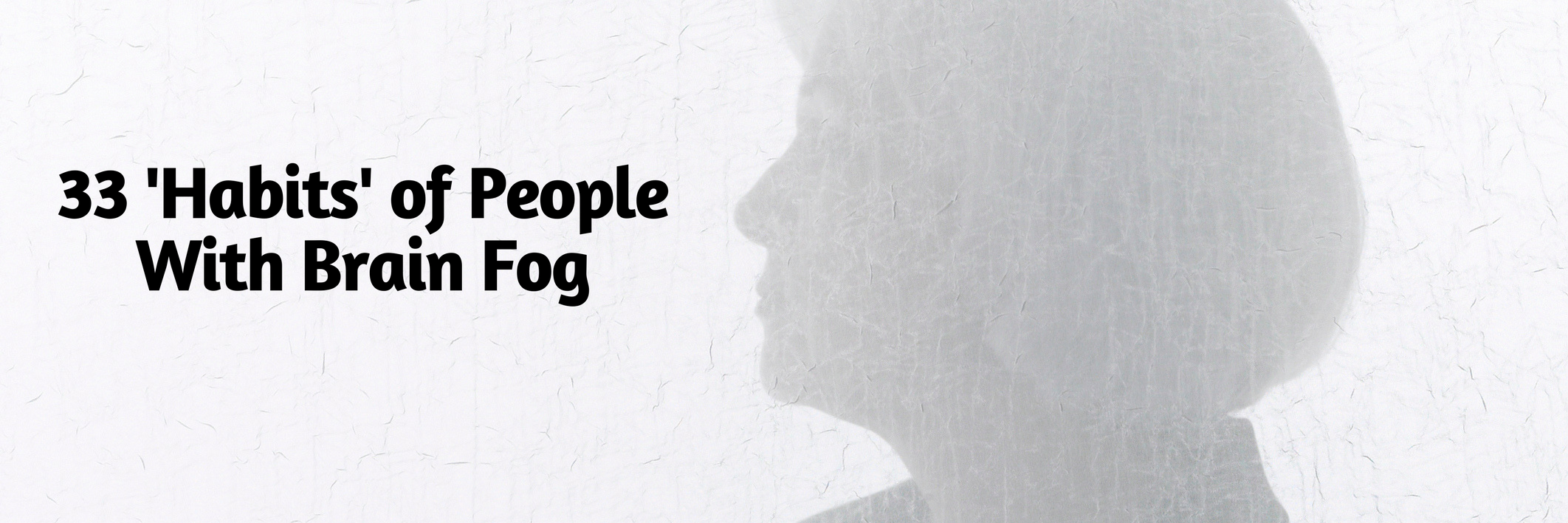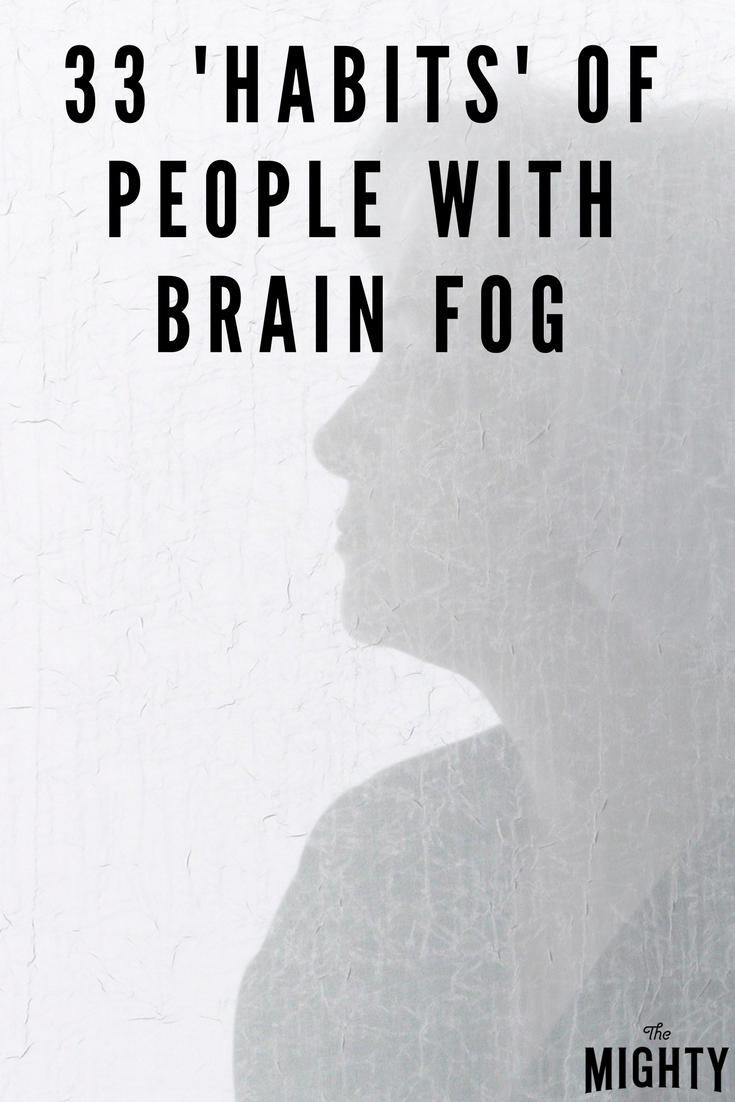When you have a chronic illness and/or are taking certain medications, you may start to develop a symptom known as “brain fog.” Brain fog can affect your cognitive abilities and make it challenging to remember even simple information or communicate effectively with others. In order to cope with these challenges, many people may find themselves picking up “habits” or engaging in routine behaviors that help them through the frustrating cognitive impairment brain fog can cause.
We asked our Mighty community to share the habits they’ve developed – good or bad – because of brain fog. Maybe some of the following will sound familiar to you, too. Let us know how you cope with brain fog in the comments below.
Here’s what the community shared with us:
1. “Lists! My life consists of lists. And reminders on my phone. I have them pop up to remind me things constantly. Such as taking my meds, not forgetting to do something important, reminding me of appointments, etc. I’m 25. I shouldn’t have to do this. But that’s how I function.”
2. “I talk to myself. A lot. I have to narrate my life or I’ll forget what I’m doing.”
3. “Recording virtually everything I need to remember in the notes section on my phone. Especially things I want to remember to say/questions I want to ask in important conversations.”
4. “I isolate as much as I can. I can’t stand the humiliation I feel when I can’t form a sentence. Bare minimum human interaction.”
5. “I rely on caffeine to make it through my day. I work in the school system, so I don’t really get any breaks. I have to be ‘on’ until the moment I get into my car and drive away. Drinking coffee, tea, soda, etc. is the only way I can keep my brain from turning into mush.”
6. “I find myself stuttering a lot. I’ve never had a stutter, but I forget what the words are or what I’m trying to say, so I trip over the words coming out. It’s so frustrating.”
7. “When I’m leaving the house, I say to myself, ‘Keys fix everything’ as I physically check to be sure I have them. And it’s true – as long as I can get back in the house, I can solve almost anything else that might arise from my brain fog.”
8. “Taking way too long to get anything done. (Not procrastinating, but like moving through peanut butter. It’s like my brain is on slow-mo.)”
9. “I tell other people (my husband or my mom) what I plan to say/do, so that when I forget, I can ask them for a reminder.”
10. “I try not to make phone calls because I have a hard time thinking up responses quickly.”
11. “[I] love using my Google calendar which my Amazon Echo can access. I just ask Alexa what’s on my calendar. The different alarm sounds remind me about daily activities, plus we can now put in scheduled reminders like ‘run the dishwasher’ so I don’t forget.”
12. “Blinking a lot, very quickly. I think it’s a nervous habit when I know my brain isn’t working well.”
13. “Re-watching a TV series less than a year later and having fun being shocked and surprised all over again because I forgot even the most iconic scenes!”
14. “I constantly repeat questions back to someone. So they ask me, ‘Hey, is today a day?’ And so I ask back, ‘Is today a day?’ and when they confirm that’s what they asked, I will answer. I do this so much it annoys even me but it has drastically cut down on me misunderstanding what people are asking me.”
15. “When I have brain fog, I double or triple check who I am sending messages to.”
16. “I zone out mid-conversation. Someone could be talking to me about something important and halfway through I need them to stop and tell me everything they just said, but very simply. It makes people think I don’t care but I can’t help it when my brain fog makes me get lost in the conversation and I need that occasional ‘pull on the leash’ to keep me mentally active in it.”
17. “Keeping busy with chores because cognitive tasks are too difficult.”
18. “Putting food in the microwave then forgetting it’s there shortly after and grabbing something else to eat.”
19. “I take screenshots of everything on my phone. Texts, websites, dates on my calendar, images, etc. I will even write myself notes and take photos of them. It’s the best way for me to keep all the information in one place I can access easily without worrying about misplacing a piece of paper or forgetting a bit of information.”
20. “I try to play games that exercise my brain to work fast. I don’t know that it helps, but I hope so.”
21. “I constantly forget words mid-sentence. I describe them in great detail, hoping the other person can fill in the blanks, while clicking my fingers.”
22. “I interrupt people because otherwise I will forget what I want/need to say. I don’t mean to do it but I’ll never remember what I was going to say unless I say it when it comes to me.”
23. “I have to do everything in order. If I don’t, if things get out of sequence, then I forget stuff. If someone talks to me while I’m getting ready to go out the door, I inevitably will forget to take something important.”
24. “I don’t have the energy to argue or put up with negative people anymore, so they’ve naturally weeded themselves out of my life. It takes a lot of energy to argue and my brain fog doesn’t give me a sharp mind to do it, so I just don’t. That’s a positive.”
25. “I text people immediately when I think of something I need to say because god knows I’ll forget it in five minutes… My few close friends have all learned that keeping their phones on ‘do not disturb’ at night is best.”
26. “Double and triple check my bag before leaving the house to make sure I have all the necessities: wallet, keys, medication, water, powerpack and cables to charge my phone.”
27. “Repeating myself over and over again as I forget what I have already said. Asking the same question more than once as even though I have heard the answer, I can’t remember what it was. Having a whole conversation with someone, but not remembering what we spoke about seconds later.”
28. “I photo document everything in life. I don’t want to forget precious memories because of brain fog.”
29. “I’ve started to forget when I’ve taken a shower or brushed my teeth last, so I shower twice a day and brush my teeth upwards of four times a day. That way if I miss one time, I’ll still be really clean from before.”
30. “I get overwhelmed by everything because I can’t think straight, focus or remember what I was doing, and so I then shut down.”
31. “Starting various different tasks as it comes to mind so I won’t forget to do it. The problem is, I start additional tasks one after another and I forget what it was I was doing in the first place. Doing one thing makes me think about doing another, so I do that thing while it’s on my mind and on it goes! I heard I should take care of something when I think of it so I don’t forget, but I obviously don’t follow it through properly!”
32. “I forget where I set things down and run around searching for them. I often run my Keurig without a mug under it, which is always fun. My brain doesn’t seem to work at all anymore.”
33. “Writing everything down! Even if I think ‘there is no way I could forget that,’ I have had too many times where I do forget it, so I always write little bits of information and thoughts and notes down, which is way helpful – as long as I can remember what the notes meant!”


